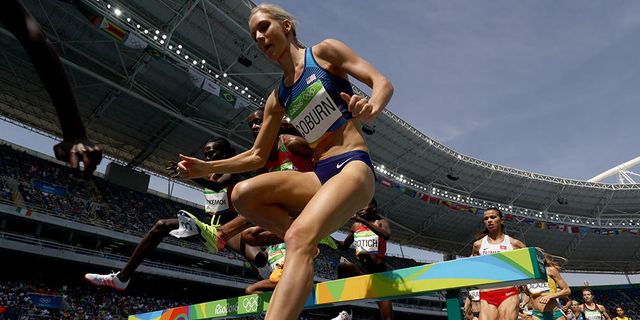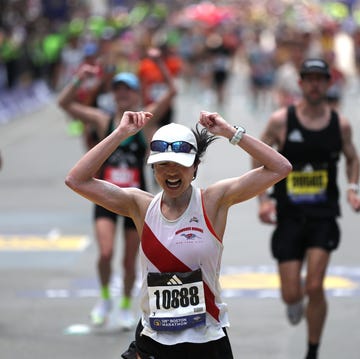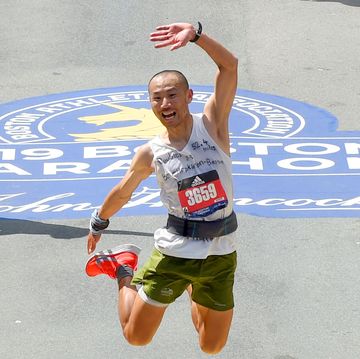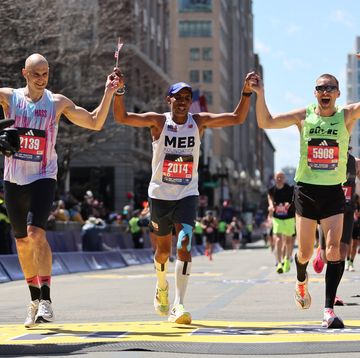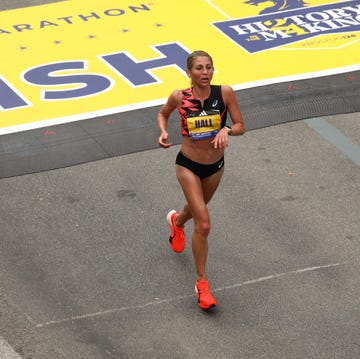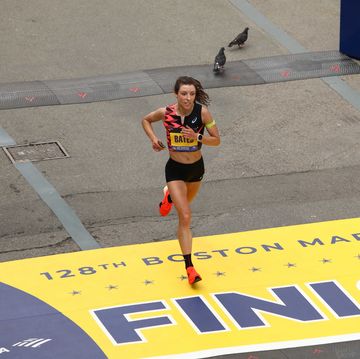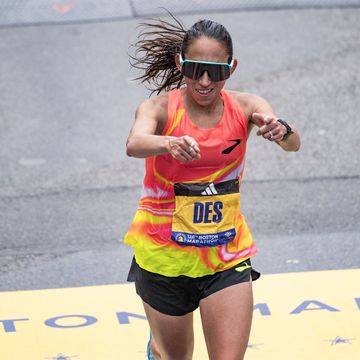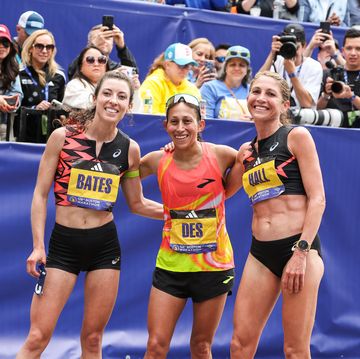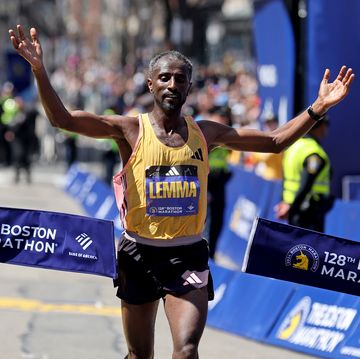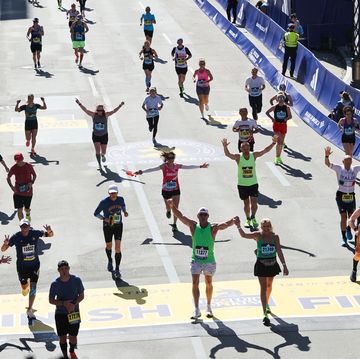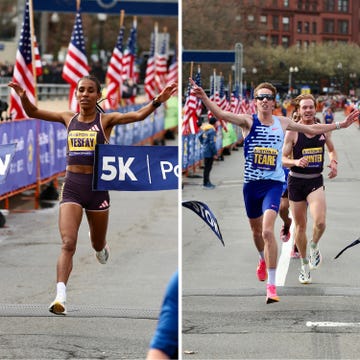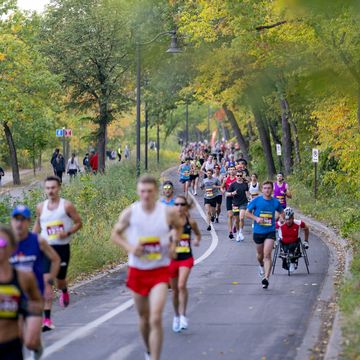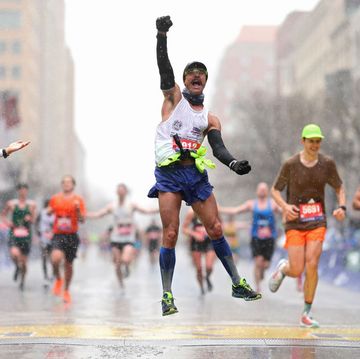A number of years ago on a flight back to Boston, the flight attendant and I struck up a brief conversation. She asked me what I did for work. Jokingly, I told her I was a runner and that I ran for a living.
She said, “Run what?”
“I run me,” I explained with a straight face. “You know, run. I put one foot in front of the other as quick as I can. It’s like walking except you speed it up a bit.”
“You mean to tell me you actually get paid just for running?” she asked me in amazement. “Yeah, isn’t it a rip off? All I have to do is run about 10 to 20 miles a day, every day of the year, sometimes in 10 degree weather and then in 90 degree weather, support myself and my family, run in about 30 races a year in every corner of the world, give clinics and speaking appearances, write for running publications and running blogs, and manage to stay injury-free through all of this. And, I have to pretend I am like wine and get better with age.”
“You should try out for the Olympics,” she suggested as she walked away to prepare for landing.
Try out for the Olympics? She said it like it was if I was going to try out for a Little League team.
This is an example of how some people totally underestimate what it takes to become an Olympian and what caliber of athletes these people actually are. Ever tell someone you are going to run the Boston Marathon and have them ask, “Do you think you can win?” Sure I’ll win—if the first 2,000 runners fall into a manhole!
After the race, someone may ask you how you did. You may have had your best race ever and run a personal best, beat runners you never imagined beating, and excitingly tell them you placed 750th out of 25,000 runners. “Oh, what went wrong?” they might ask. “I see you training every day, running all those miles. Were you sick or something?”
Until they have tried it, most people just don’t realize and never will how astonishingly fast running a sub-five-minute mile for 26 consecutive miles really is. I can’t even run one mile at that pace anymore. Runners who can run this fast are few and far between. They must have everything going for them—a tremendous cardiovascular system, excellent lung capacity, a lean body, proper coaching and diet, along with the determination and aggressiveness to push themselves to reach phenomenal physical limits.
Which brings us back to “trying out for the Olympics.” The best way to respond to something like this is by telling people that every time you lace on a pair of racing shoes, you are trying out for the Olympics. Your chances may be pretty slim but you have the same opportunities as anyone…sort of.
In the United States, the odds of making the Olympic team are staggeringly low, let alone winning a medal in the Games themselves. For example, in the marathon, you have to first meet the qualifying time within a year or so of the Olympic Marathon Trials. Only a few hundred runners out of hundreds of thousands of runners in the United States can do this. Then you must show up at one race (the Trials), run the race of your life, and finish in the top three to make the team. Theoretically, a runner could hold the world record, have won every marathon and race they have run in the last four years, and then get injured or have a bad race at the Trials and place fourth, missing the team by a few seconds. You have to be one of the three best on that one specific given day. No one is a shoo-in.
Now, look at the odds of running in the Olympic Marathon and winning a medal, and then the odds of winning the gold! You have to be the best in the entire world, not on paper, not on past statistics, but on that one given day of the race. You have to beat the very best every other country has to offer. And, you only have one chance every four years to do this.
So, if anyone ever asks you if you intend to try out for the Olympics, just tell them that you’re going to give it your best shot and hope to bring the gold back to the United States.
Upon disembarking the plane, the nice flight attendant wished me luck and said, “I’ll be watching for you on TV during the Olympics.”
“Right,” I said. “It was nice meeting you.”
I hope she isn’t too disappointed when she doesn’t see me lined up in Rio.
* * *
Dave McGillivray is president of DMSE, Inc., and has been Race Director at the Boston Marathon since 2001.
